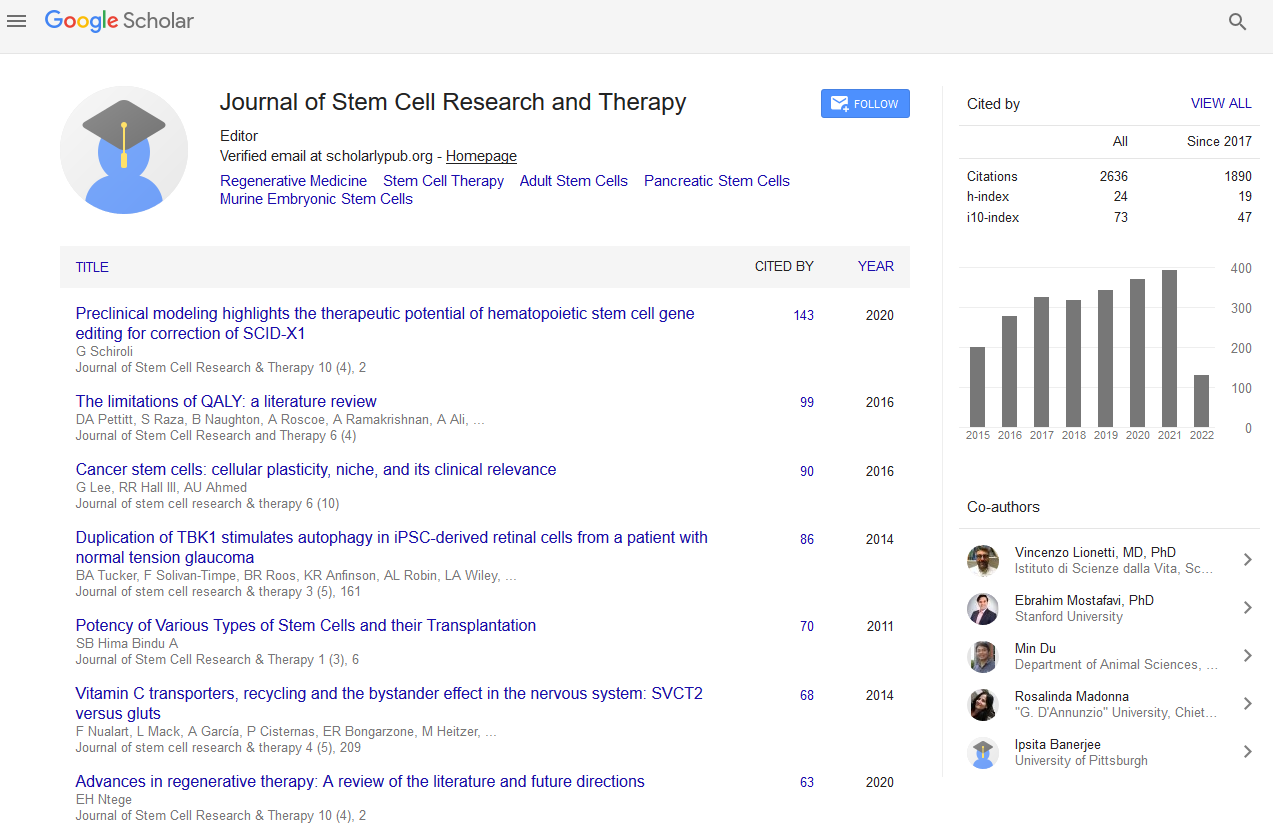Indexed In
- Open J Gate
- Genamics JournalSeek
- Academic Keys
- JournalTOCs
- China National Knowledge Infrastructure (CNKI)
- Ulrich's Periodicals Directory
- RefSeek
- Hamdard University
- EBSCO A-Z
- Directory of Abstract Indexing for Journals
- OCLC- WorldCat
- Publons
- Geneva Foundation for Medical Education and Research
- Euro Pub
- Google Scholar
Useful Links
Share This Page
Journal Flyer

Open Access Journals
- Agri and Aquaculture
- Biochemistry
- Bioinformatics & Systems Biology
- Business & Management
- Chemistry
- Clinical Sciences
- Engineering
- Food & Nutrition
- General Science
- Genetics & Molecular Biology
- Immunology & Microbiology
- Medical Sciences
- Neuroscience & Psychology
- Nursing & Health Care
- Pharmaceutical Sciences
Abstract
Dual Regimen with Stem Cell Antagonists and Differentiating Agents for Effective Chemotherapy
Chemoresistance and radioresistance of various malignancies has been attributed to the presence of cancer stem cells. Elimination of these cancer stem cells has been postulated to help enhance the effectiveness of conventional chemotherapy by decreasing resistance to chemotherapy and radiotherapy. However identifying cancer stem cells and selectively targeting them has been a challenge due to the lack of unique markers. Interconversion of more differentiated cells to less differentiated cells may potentially confound this problem. A mathematical model which simulates stem cell homeostasis with such inbuilt probability of interconversion is presented here. Perturbing the system by introducing various agents which enhance differentiation leads to interesting results. Utilizing pure stem cell antagonists does not lead to elimination of the tumor cells due to dedifferentiation. Differentiation of specific subsets of cells also does not lead to elimination of cancer cells and in some situations may paradoxically drive tumor growth in a robust manner. The model predicts that a dual regimen consisting of a stem cell antagonist and a differentiating agent which acts on multiple cell populations is effective in decelerating the tumor growth and in eliminating the tumor cells. This model provides a theoretical framework for the applicability of such a dual regimen in cancer treatment.


